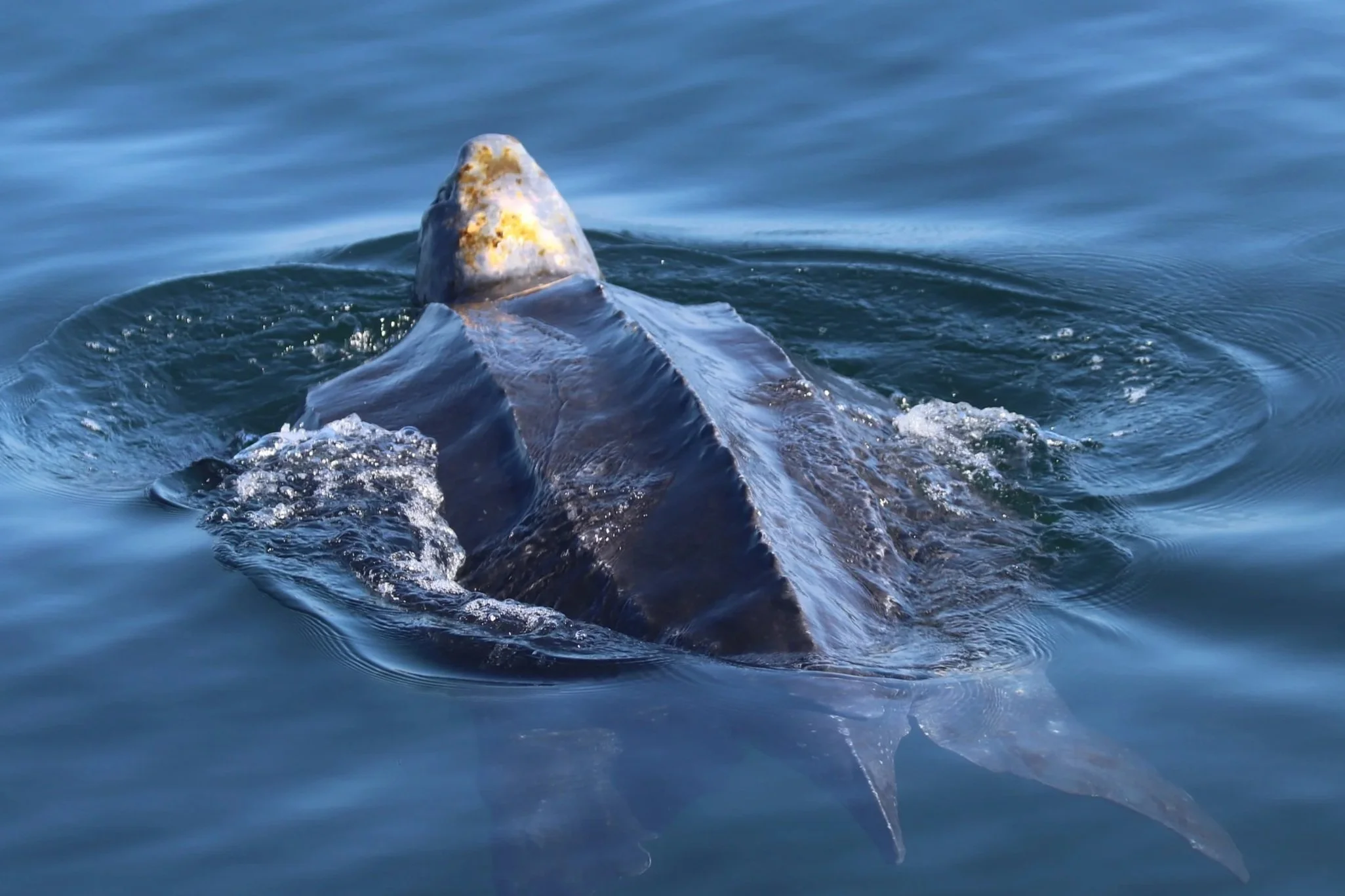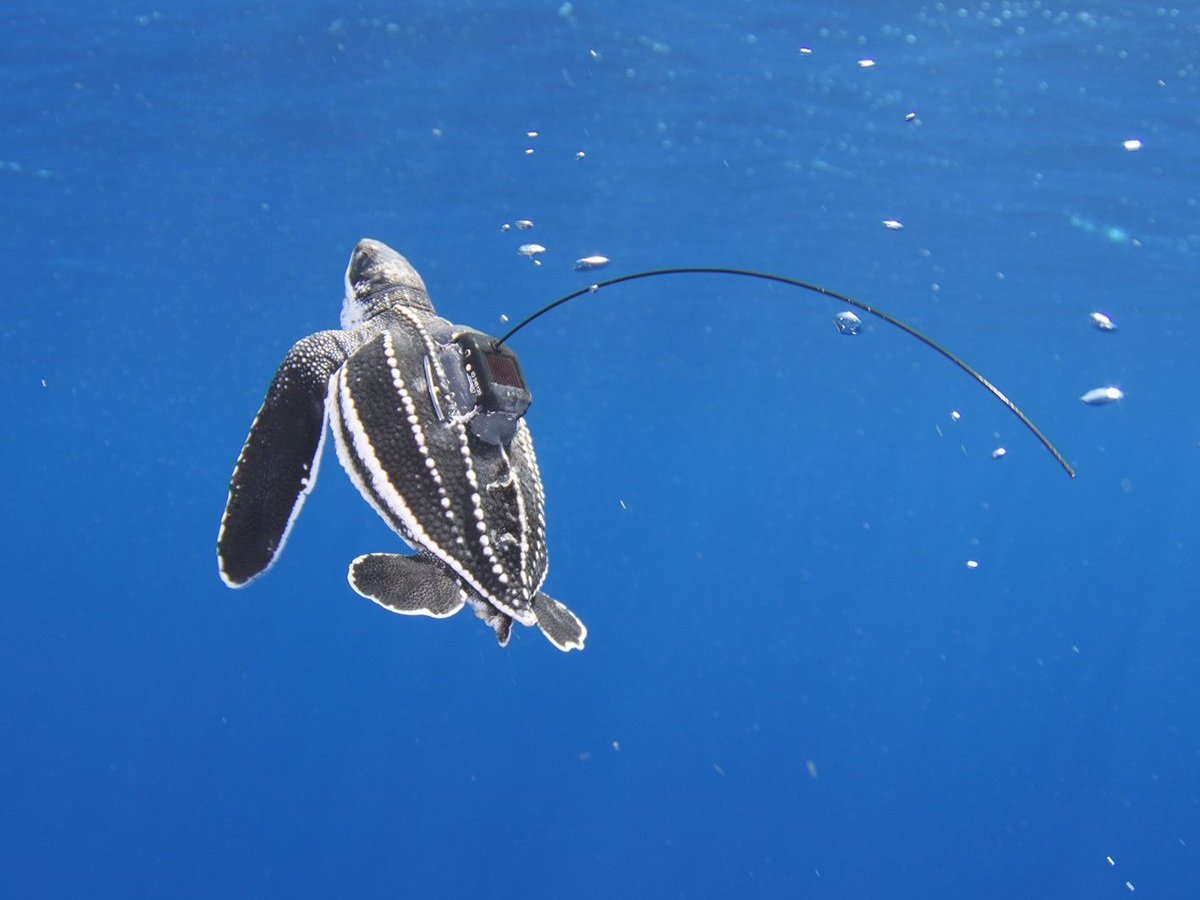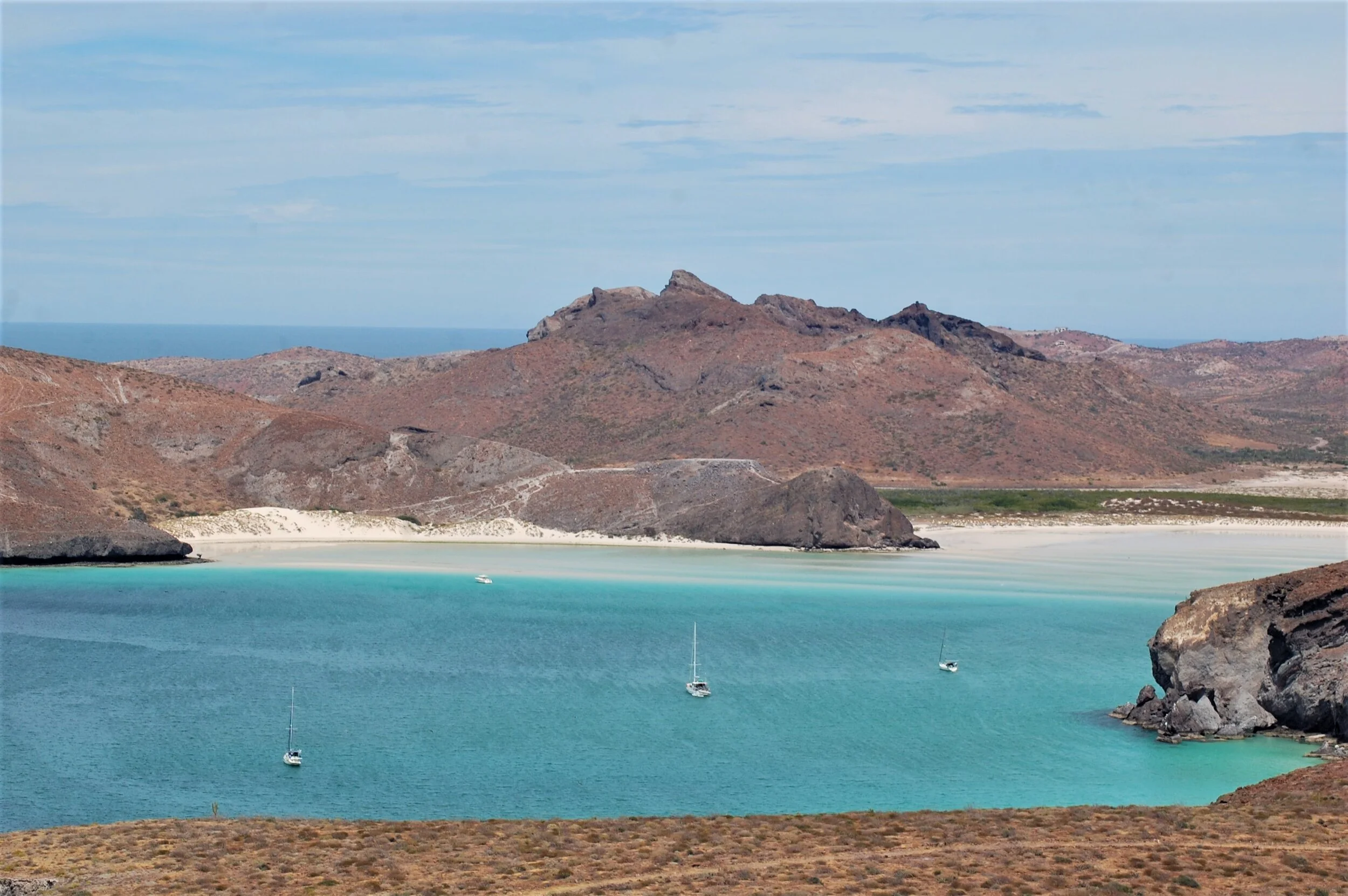Upwell’s Executive Director, Dr. George Shillinger, and Upwell Researcher Dr. Sean Williamson recently traveled to the Azores for the unique opportunity to satellite-tag juvenile loggerheads being rehabilitated at the Aquário Porto Pim before their release into the North Atlantic.
Saving East Pacific Leatherback Turtles from the Brink of Extinction
Concerned scientists, conservationists, and managers gathered in 2012 to discuss ways to stop the extinction of East Pacific leatherbacks; they formed a regional network called LaudOPO in 2015. This network has developed an Action Plan to address the two main threats to East Pacific leatherbacks: fisheries bycatch and egg loss or reduced hatchling recruitment at nesting beaches. Upwell is investigating active recovery techniques such as egg translocation and headstarting as options to complement LaudOPO’s conservation action plan.
Welcoming back California's leatherbacks
Learn about the female turtle tagged by NOAA and Upwell in 2020 whose transmitter is still reporting. She was tagged in September 2019, and she returned to same area where she was tagged in the Gulf of the Farallones this year on 31 July 2020. It’s exciting when we see one of these movement records close the loop! Additional leatherback sightings in the Monterey Bay have been reported recently.
Studying Turtles at Sea Offers Deeper Insights
Data collected at nesting beaches give us only a brief glimpse into sea turtles’ intricate life histories. Satellite tags are one of the best tools available to collect data on sea turtle movements and behaviors in marine habitats. But where tags are deployed matters. Deploying tags at nesting beaches means we are limiting our research scope to the females within a population that are nesting in a given year.
Discovering the Origins of Leatherbacks in the California Current
At the turn of the millennium, the origin of leatherback turtles in California waters was unproven. Many assumed they originated from nesting beaches in Mexico or Costa Rica; few could have imagined the extent of their travels across the entire Pacific Ocean. We know now that West Pacific leatherbacks only make their epic trans-Pacific migration about every three to five years. Unfortunately, the batteries on early satellite tags didn’t last long enough to track their whole migration.
Saving Sea Turtles with Technology
You might not think of someone behind a desk as working on the frontlines of sea turtle conservation, but Upwell’s Oceanographic Researcher, Tony Candela is doing just that. Tony is incorporating mathematics and oceanography to simulate the movements of hatchling and juvenile sea turtles to advance protections for them at sea.
Upwell Featured in Carmel Magazine
A bird's eye view on sea turtles in La Paz Bay
Amidst the Coronavirus shutdown, citizen scientists quarantining on their sailboats in Mexican waters continue to report their sea turtle sightings via Upwell’s Sea Turtle Spotter project. The sightings reported by the citizen scientists are astonishing. Following on these reports, Upwell’s resident researcher in Mexico, Stephanie Rousso, arranged with a local pilot to take to the sky for a bird’s eye view of sea turtle distribution around the southern end of the Baja California Peninsula.
Telling Stories of the Ocean through Photography - Kip Evans
Kip Evans is an award-winning conservation focused underwater filmmaker and photographer. Kip is based in Carmel, California, not far from Upwell’s headquarters. He works on a range of projects with non-profits or his Mission Blue team telling the stories of the ocean. We were fortunate to spend some time with Kip recently to learn about his underwater experiences with turtles and more.
Living the Dream: Life as a Scientist Who Studies Sea Turtles
One of the first things people say to me when they find out I’m a scientist that studies sea turtles is: “Wow, you are living everyone’s childhood dream!”. I am living my childhood dream, though my day-to-day work may be different from what most people expect when they think of being a marine biologist. So, what is it really like?















